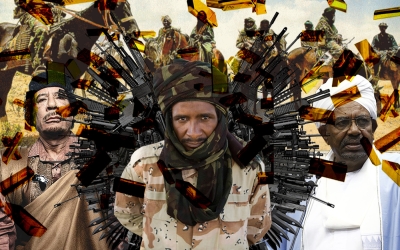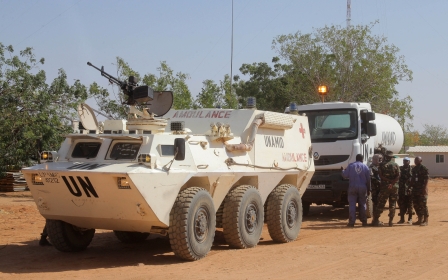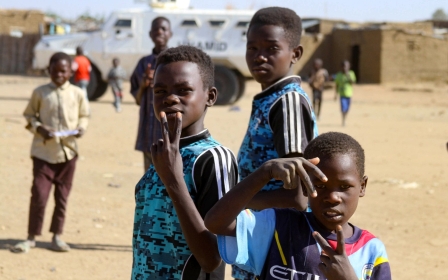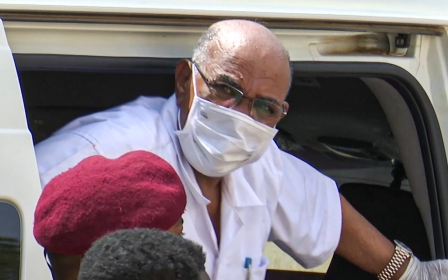Sudan to hand over Omar al-Bashir and other wanted officials to ICC
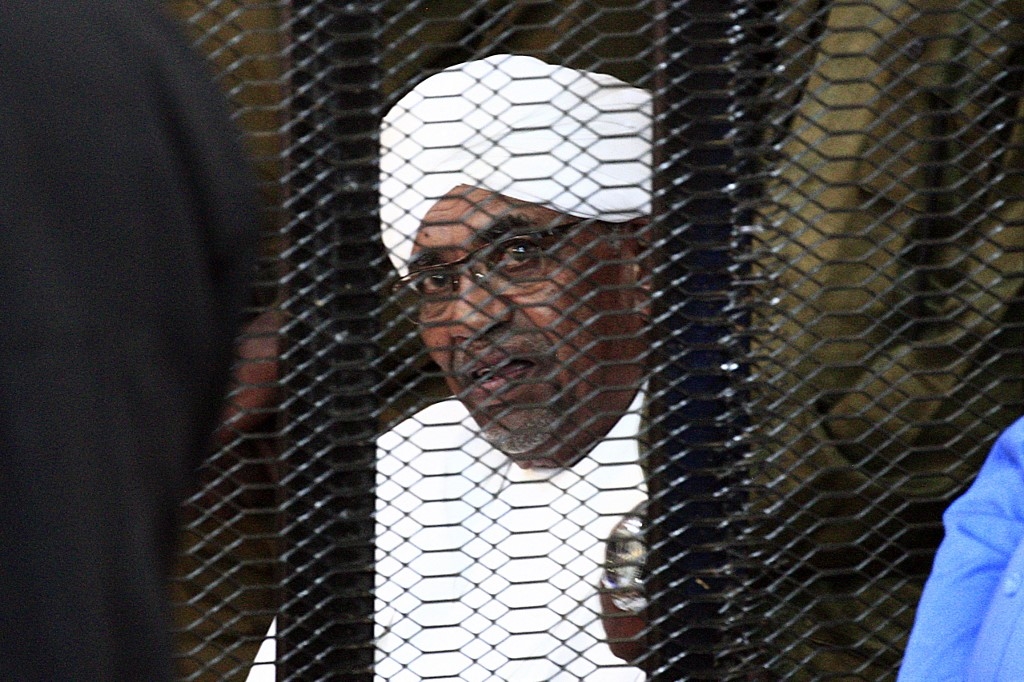
Sudan's cabinet has decided to hand over longtime autocrat Omar al-Bashir and other "wanted officials" to the International Criminal Court (ICC), Foreign Minister Mariam al-Mahdi said on Tuesday.
Bashir, currently on trial in Khartoum over the 1989 military coup that propelled him to power, is wanted by the ICC for alleged war crimes, genocide and crimes against humanity during the conflict in Darfur, the region in western Sudan where an estimated 300,000 people were killed and millions displaced from 2003 onwards.
'I witnessed the killing of my entire family in front of my eyes in 2004. I want to see the real criminal behind bars in The Hague'
- Ahmed Adam, IDP from Darfur
The foreign minister's announcement was reported by the Sudanese news agency (SUNA) and came after a meeting with the ICC prosecutor, Karim Khan, on Tuesday in Khartoum, where he also met with the country’s justice minister and public prosecutor.
According to SUNA, Mahdi informed Khan that the government has decided to extradite the wanted persons to the ICC, and has approved the draft law on Sudan's accession to the Rome Statute that established the court.
“The two matters will be presented in a joint meeting between the Sovereignty Council and the cabinet for the approval of the extradition and ratification of the law,” she said.
Mahdi reiterated Sudan's support for the efforts of the court and its cooperation with the ICC's judges to achieve justice for the victims of the war in Darfur.
Sudan’s public prosecutor, Mubarak Mahmoud, met with Khan and expressed readiness to cooperate with the ICC in the Darfur trial. According to SUNA, the prosecutor “stressed the importance of taking practical steps to bring justice to the victims of the war in Darfur and to hold accountable those responsible for the crimes committed against them”.
Bashir, who came to power after overthrowing his democratically elected predecessor Sadiq al-Mahdi in 1989, was ousted in April 2019 following months of protests against his rule. Sudan has since been ruled by a hybrid civilian-military Sovereignty Council, formed by the Transitional Military Council and the Forces of Freedom and Change, based on an agreement on a 39-month transitional period.
Bashir, his former defence minister Abdel Rahim Mohamed Hussein, former head of the National Congress Party Ahmed Haroun, and senior Janjaweed militia leader Ali Kushayb are all wanted by the ICC for their role in the brutal government repression in Darfur.
If Bashir is handed over to The Hague, he would be the third African leader to appear in front of the court, after former Ivory Coast president Laurent Gbagbo and current Kenyan head of state Uhuru Kenyatta. But, unlike those two, Bashir is widely expected to be found guilty, standing accused of crimes on a far larger scale.
IDPs call for 'real actions'
Darfur's internally displaced people (IDPs) have welcomed the news that Bashir is due to face international justice. The spokesman of the General Committee of the IDPs and Refugees, Adam Rigal, told Middle East Eye that they welcomed Khan’s visit to Khartoum and the subsequent decision to hand over Bashir to The Hague.
However, he expressed his mistrust of the government.
“We do not trust such government speech any more. We want to see real actions on the ground.”
He added that the government needs to put an end to the ongoing violence in Darfur, and to disarm the militias that are still committing “the same old crimes” in the region.
Ahmed Adam, from Abuzar IDP camp in West Darfur state, welcomed the news.
“I have been waiting for this moment for decades,” he told MEE. “I’m from Jabal Marra. I witnessed the killing of my entire family in front of my eyes in 2004. I want to see the real criminal behind bars in The Hague. This is the only way of justice that can convince the IDPs and the victims that peace can be achieved, and prove the seriousness of the transitional government.”
Another displaced Darfuri, Osman Adam from Abushook camp in North Darfur, said that millions of IDPs in his region are keen on handing the war crime suspects to the ICC.
“We will not believe the current promises unless we see practical actions towards the trial of Bashir and the other officials, including Ahmed Haroun and Abdel Rahim Mohamed Hussein,” he told MEE.
'We will not believe the current promises unless we see practical actions towards the trial of Bashir and the other officials, including Ahmed Haroun and Abdel Rahim Mohamed Hussein'
- Osman Adam, Darfur IDP
The issue of whether to turn Bashir over to the ICC has caused legal and political controversy since his arrest.
Some legal experts have argued that Bashir should be tried within Sudan, to enhance the country’s transitional justice system.
Others said the Sudanese legal system is ill-equipped to handle Bashir’s cases on its own.
Meanwhile, the potential ICC prosecution has been resisted by some military elements that once belonged to Bashir’s state apparatus, who currently serve in the transitional government. For example, Mohamed Dagalo - also known as Hemeti - heads the Rapid Support Forces (RSF), a paramilitary group composed of multiple Janjaweed militia groups accused of crimes against humanity in Darfur and deadly suppression of the 2019 uprising. He now serves as deputy head of the Sovereign Council. Legal experts have told MEE that those elements have pushed back against handing Bashir to the ICC over fears that they might also be subject to prosecution in the future.
Middle East Eye propose une couverture et une analyse indépendantes et incomparables du Moyen-Orient, de l’Afrique du Nord et d’autres régions du monde. Pour en savoir plus sur la reprise de ce contenu et les frais qui s’appliquent, veuillez remplir ce formulaire [en anglais]. Pour en savoir plus sur MEE, cliquez ici [en anglais].


